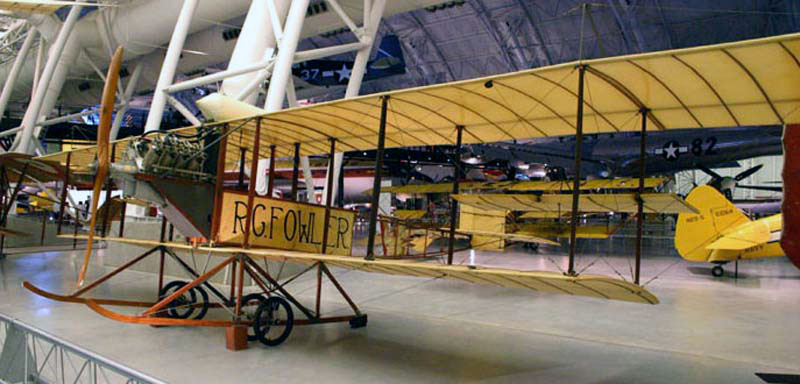|
Jay Gage was an aeronautical
engineer and aviator from Los
Angeles, California during the early
part of the 20th Century who also
designed and built airplanes.
The1912 Gage biplane in the NASM collection is
also referred to as the Fowler-Gage, in
recognition of its owner and pilot, Robert G. Fowler.
Beginning in October 1912, Fowler made numerous
exhibition and passenger flights in California. He made
his most famous flight in the airplane in 1913, flying
ocean-to-ocean across Panama. With the Gage now on
floats, Fowler started his Isthmus of Panama crossing
with a takeoff from the Pacific side at 9:45 a.m. on
April 27. It was an extraordinarily dangerous flight,
with no open areas available for emergency landings.
Nevertheless, he completed the 83 km (52 mi) flight in
one hour and 45 minutes, landing with his
passenger/cameraman, R.E. Duhem, at Cristobal at 11:30
a.m.
Fowler
continued to perform further exhibition and
passenger-carrying flights, as well as flying linemen on
inspection trips over the transmission lines between
Sacramento and Oraville, California, for the Great
Western Power Company. He retired the airplane in 1915.
Dimensions:
Wingspan: 13.1 m (43 ft)
Length: 7.6 m (25 ft)
Height: 4.6 m (15 ft)
Weight: 363 kg, without engine
(800 lb)
Physical Description:
Tractor biplane with one
90-horsepower Curtiss OX-5 V-8 engine. Open-frame
fuselage. Double wheel landing gear with forward
protruding landing skids. Natural finish overall with
black markings
Source:
Smithsonian National Air & Space Museum &
Wikipedia
|

